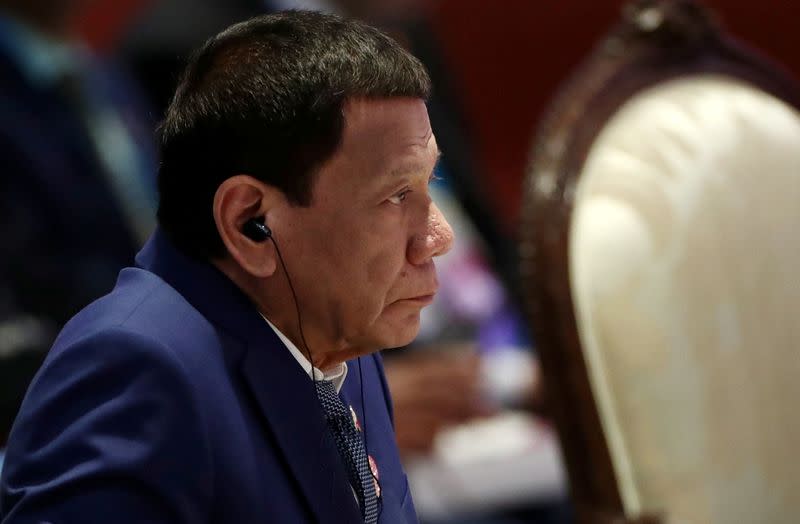
By Karen Lema and Martin Petty
MANILA (Reuters) - Philippine President Rodrigo Duterte on Tuesday terminated a two-decade-old Visiting Forces Agreement with the United States (VFA) delivering on threats to downgrade an alliance crucial to U.S. interests.
The mercurial Duterte, who has clashed with the former colonial ruler over several issues, has decided to pull the plug on the two-decade troop rotation pact to enable the Philippines to be more independent with its relations with other countries, spokesman Salvador Panelo said.
"The president will not entertain any initiative coming from the U.S. government to salvage the VFA, neither will he accept any official invitation to visit the United States," Panelo said in a statement.
The decision, sparked by the revocation of a U.S. visa held by the former police chief who led Duterte's bloody war on drugs, could complicate U.S. military interests in the Asia-Pacific as China's ambitions rise.
It would also limit Philippine access to U.S. training and expertise in tackling Islamist extremism, natural disasters and maritime security threats.
Panelo said Duterte's decision was a consequence of U.S. legislative and executive actions that "bordered on assaulting our sovereignty and disrespecting our judicial system".
The U.S. embassy in Manila called it "a serious step with significant implications".
"We will carefully consider how best to move forward to advance our shared interests," it said in a statement.
The defense pact sets out rules for U.S. soldiers to operate in the Philippines and is one of three governing what Washington has called an "ironclad" relationship, despite Duterte's tirades about U.S. hypocrisy, ill-treatment and aging weapons.
Duterte says the United States uses the pacts to conduct clandestine activities like spying and nuclear weapons stockpiling, which he says risk making the Philippines a target for Chinese aggression.
'WE MUST HAVE A SAY'
Some senators sought to block Duterte's move soon after news of it broke, arguing that without Senate approval he had no right to unilaterally scrap international




